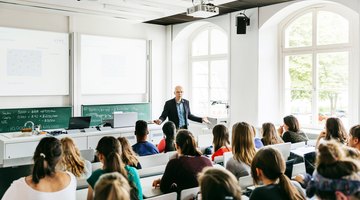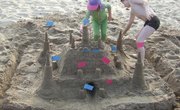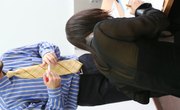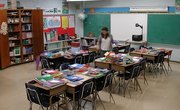Constructivism is a theory of teaching and learning promoted by educators such as John Dewey, Lev Vygotsky and Paulo Freire. The theory emphasizes the co-creation or co-construction of knowledge through dialogue and experimentation. In constructivism, the teachers and students work together and learn together. There are several other models or methods of teaching and learning that are opposed to some or all of the basic principles of constructivism.
Lecturing
Also known as didacticism, lecturing involves a teacher or professor standing in front of a classroom and talking at students about a subject in which he or she is an expert. In “Pedagogy of the Oppressed,” Paulo Freire refers to didacticism as the “banking method” because it conceives of teachers as bankers who make information deposits in the minds of students. Lecturing, according to Freire, does not allow dialogue or interaction between teachers and students, which is a key feature of constructivism.
Self-Teaching
Also known as auto-didacticism, self-teaching occurs when students are inspired to research a topic on their own so as to develop a deeper understanding of it. Though he admires auto-didacts or self-taught students, John Dewey thinks there’s a big difference between self-teaching and co-learning. In “Democracy and Education,” Dewey emphasizes the importance of the co-experimentation and cooperation between teachers and students to the theory of constructivism. Self-teaching does not feature this co-experimentation, thus making it opposed to that aspect of constructivism.
Flipped Classrooms
The theory behind a flipped classroom is to have students watch video lectures on a topic on their own time, and then complete exercises and practice during class time. Flipped classrooms are a sort of hybrid form of lecturing and constructivism, though they remain opposed to constructivism in terms of how knowledge is gathered by students. Though there is space for students and teachers to interact with each other in a flipped classroom, the theory behind it is still based in the idea that the teacher is an expert who must impart knowledge to the novice students. Consequently, even though students can still communicate with teachers, unlike with didacticism, they cannot co-create knowledge with teachers, a key feature of constructivism.
Debate
Sometimes called deconstructivism, debate -- specifically Socratic-style debates or discussions -- occur when students espouse an opinion or idea and the teacher challenges the student to defend the idea through logic and argumentation. Such deconstructivist debates are similar to constructivism in that both students and teachers cooperate and communicate with one another. However, while constructivism emphasizes the co-creation of knowledge, deconstructivist debate emphasizes the dismantling of opinions, usually the students’ opinions and usually through the challenges of the teacher.
Related Articles
References
Writer Bio
Samuel Hamilton has been writing since 2002. His work has appeared in “The Penn,” “The Antithesis,” “New Growth Arts Review" and “Deek” magazine. Hamilton holds a Master of Arts in English education from the University of Pittsburgh, and a Master of Arts in composition from the University of Florida.










